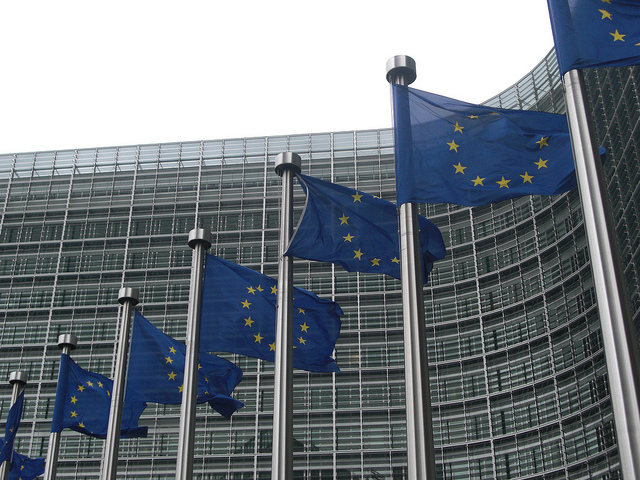Joint programming initiatives (JPIs) are supported by the European Commission (EC) and its European Research Area (ERA). JPIs aim to pool national research efforts in order to make better use of Europe’s public R&D resources and to tackle common European challenges more effectively in some key areas. JPIs are structured and strategic processes, whereby Member States agree, on a voluntary basis and in a partnership approach, on common visions and Strategic Research Agendas (SRA) to address major societal challenges.
© Sébastien Bertrand. Flickr (www.flickr.com/photos/) This work is licensed under a Creative Commons Attribution 2.0 Generic License.
The JPI More Years, Better Lives, (MYBL) on demographic change, arranged a seminar on stakeholders of the JPIs and the public engagement dimensions of the JPIs on Tuesday 2nd of June 2015 at the premises of EC DG for Research and Innovation in Brussels. The seminar gathered researchers from various disciplines like neurogenetics, marine biology, climate and demographic change just to name a few. These researchers are connected to a number of JPI’s. The seminar attracted also stakeholders of the JPI’s. These stakeholders represented various actors, for instance funding agencies, citizen organisations and governments. The seminar was chaired by Anne-Sophie Parent from AGE Platform Europe, a European network for organisations representing the 50+ population of Europe, and Angelika Poth-Mögele from the Council for European Municipalities and Regions.
The first half of the agenda focused on the importance of public engagement in ERA policy with presentations from Martin Schimdt from the High Level Group for Joint Programming; Giuseppe Borsalino, DG Research and Innovation, Science with and for Society; Michael Dinges from ERA Learn and Janne Wikström from the PE2020-project at the University of Helsinki. The second half of the seminar consisted of each JPI’s elaboration on their stakeholder experiences. Richard Pieper from the JPI More Years, Better Lives for instance spoke on the need of a systematic role for stakeholder feedback on societal impact; Dominique Darmendrail from the JPI Water spoke on the role of stakeholders as mirror groups. It became evident from these two JPI-presentations together with presentations from other JPIs that there is a notable variation in the name, structure and function of stakeholder bodies between the different JPIs. Among these bodies at least Societal Advisory Boards, Scientific Advisory Boards, Stakeholder Advisory Boards and Strategic Advisory Boards were mentioned.
Among the PE-presentations Schmidt spoke mostly on the time and substance cycle of joint programming and the needs of different kinds of stakeholder engagement throughout the cycle. His presentation can be summarized by his key message on having scholars in the centre of stakeholder participation throughout the joint programming cycle. Michael Dinges also spoke on the joint programming cycle, especially from the point of view of participative practice in definition of research agendas, selection and inclusion of stakeholders in joint programming processes and cycles.
Borsalino and Wikström focused on the conceptual definitions of public engagement in general and the stakeholder role in particular in joint programming. Borsalino stressed that there’s a need of a harmonised and on scholarly work based vocabulary for public and stakeholder engagement in joint research programming. The ERA needs a definition of citizen and stakeholder engagement according to these presentations. Wikström presented the PE-2020 project’s working definition on public engagement as “activities where there is a distinct role for the citizens or stakeholder groups in research & innovation processes” and continued by classifying PE as public communication, public activism, public consultation, public deliberation or public participation.
Wikström also elaborated on the initiative angle and timing of engagement. The basic categories for public initiatives are top down, deliberative and bottom-up. Top-down initiatives often come from sponsors such as funding agencies or higher education institutions or other institutionalized actors. Deliberative initiatives are usually based on negotiations; they are transparent, contextual and they enable integrity and respect of actors. They include evaluation, revision, information and knowledge dissemination. Bottom-up initiatives stem from citizens and public representatives. The timing of public engagement is divided in the three main categories of upstream or early stage of the research engagement; mid-stream or in the middle of the research process engagement and down-stream or in the end of the research and dissemination engagement.
Wikström focused also on the role of societal interaction plans (SIP) for research grant applications sent to the JPIs. There is no actual joint template for these plans or the evaluation of them. Wikström pointed out some aspects and questions that should be considered when eventually developing such a template. Among these issues are the recognition of most important stakeholders and more co-operation and co-creation in research. An important question is also how well the project has organised the dialogue and communications on the research results. Of importance is as well how the management of data and its wider use is organised.
Regarding the societal interaction plans and templates for them Wikström suggested a wider piloting of them in joint programming initiatives. So far the PE2020-project is piloting the societal interaction plans of applicants for Finnish national funding of the JPI MYBL. Many JPIs expressed their interest to participate in such a piloting which would evaluate the societal interaction embedded in research grant applications. Further piloting of societal interaction could perhaps give an answer to the question on an eventual need of a common SIP-template for joint programming research. The results of this kind of SIP-piloting could be a theme of a PE-2020 seminar in late 2016 or early 2017.
-Janne-
